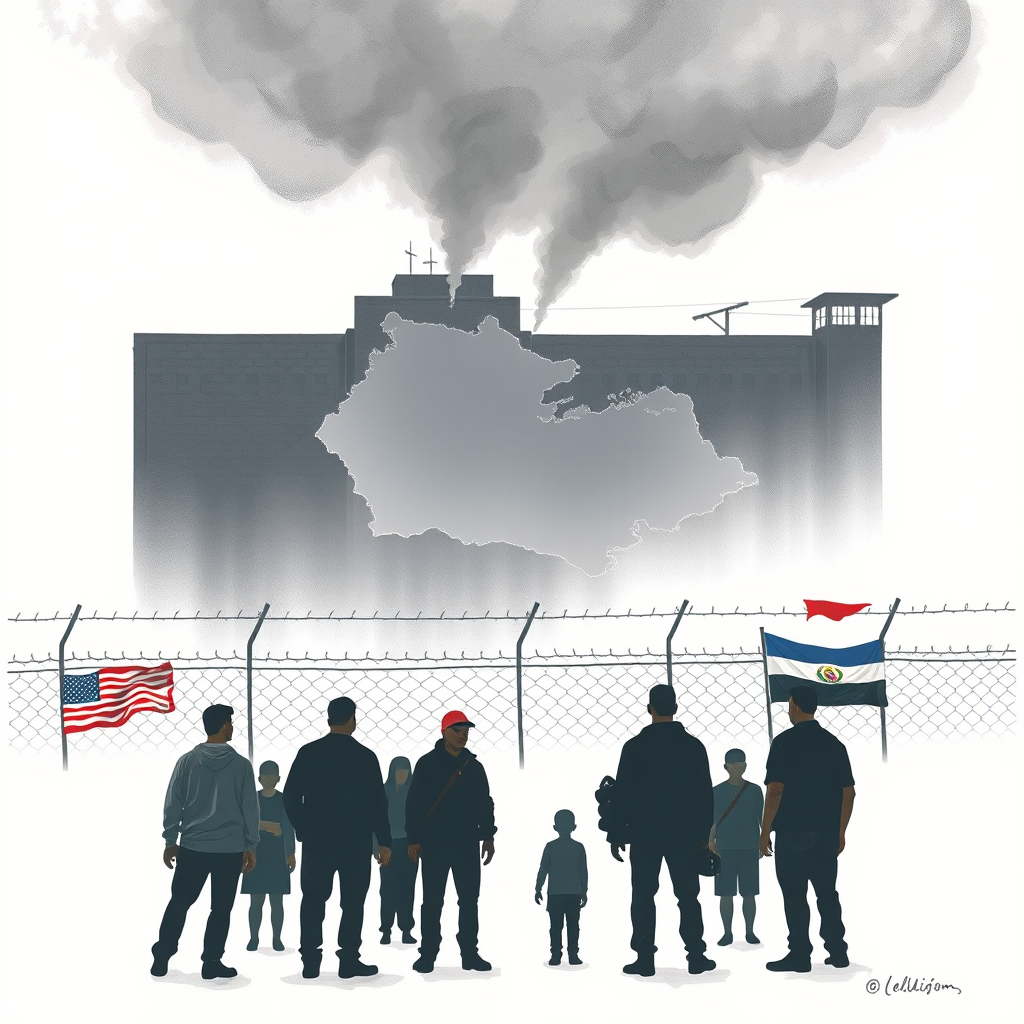El Salvador Leader Warns: Becoming a US Prison?

San Salvador’s Archbishop Jose Luis Escobar has publicly appealed to President Nayib Bukele to resist turning El Salvador into a detention center for migrants deported from the United States, drawing a stark comparison to the controversial Guantanamo Bay detention camp. The plea follows confirmation of a deal between Bukele and US President Donald Trump to house deported individuals within a large Salvadoran prison facility.
Escobar voiced his concerns to reporters Sunday, stating, “We ask that our authorities not allow our country to become a big international prison.” He referenced recent commentary warning El Salvador risks becoming “a new Guantanamo,” highlighting the US’s history of utilizing the Cuban territory – leased for a naval base – as a detention site for terrorism suspects and, increasingly, expelled migrants, often without due process.
The agreement, solidified during Bukele’s visit to the White House Monday, involves the imprisonment of hundreds of migrants, many Venezuelan, expelled by the US. These individuals are being held in a massive mega-prison where human rights organizations have already raised serious concerns about inhumane conditions.
President Trump has justified the deportations, invoking the rarely used Alien Enemies Act of 1798, claiming those expelled are largely violent criminals. However, families and legal representatives of those deported dispute this characterization, alleging some were targeted based on superficial criteria, such as tattoos. Notably, several individuals currently held in El Salvador were previously detained at Guantanamo Bay.
Escobar warned that El Salvador could become a cheaper alternative to Guantanamo for the US to house prisoners, stating, “We ask the government not to allow it.”
This situation presents a deeply troubling ethical dilemma. While nations have the right to control their borders, outsourcing detention to avoid scrutiny and potentially violating human rights standards is unacceptable. El Salvador, already grappling with its own internal challenges, should not become a dumping ground for the US’s immigration policies. The international community must closely monitor this agreement and ensure the humane treatment and legal rights of all those affected. The comparison to Guantanamo is not hyperbole; it underscores the potential for abuse and the erosion of fundamental principles of justice.